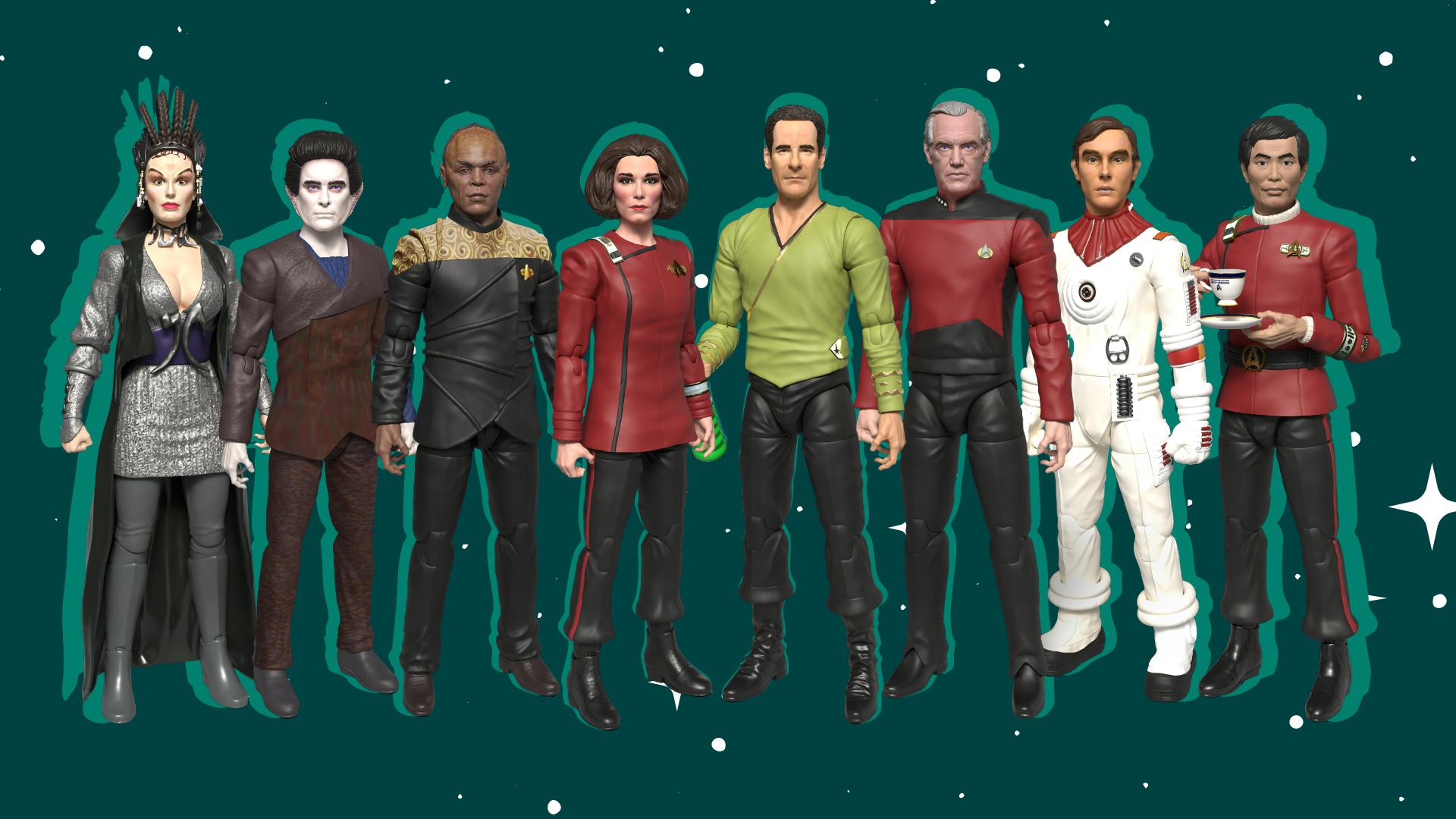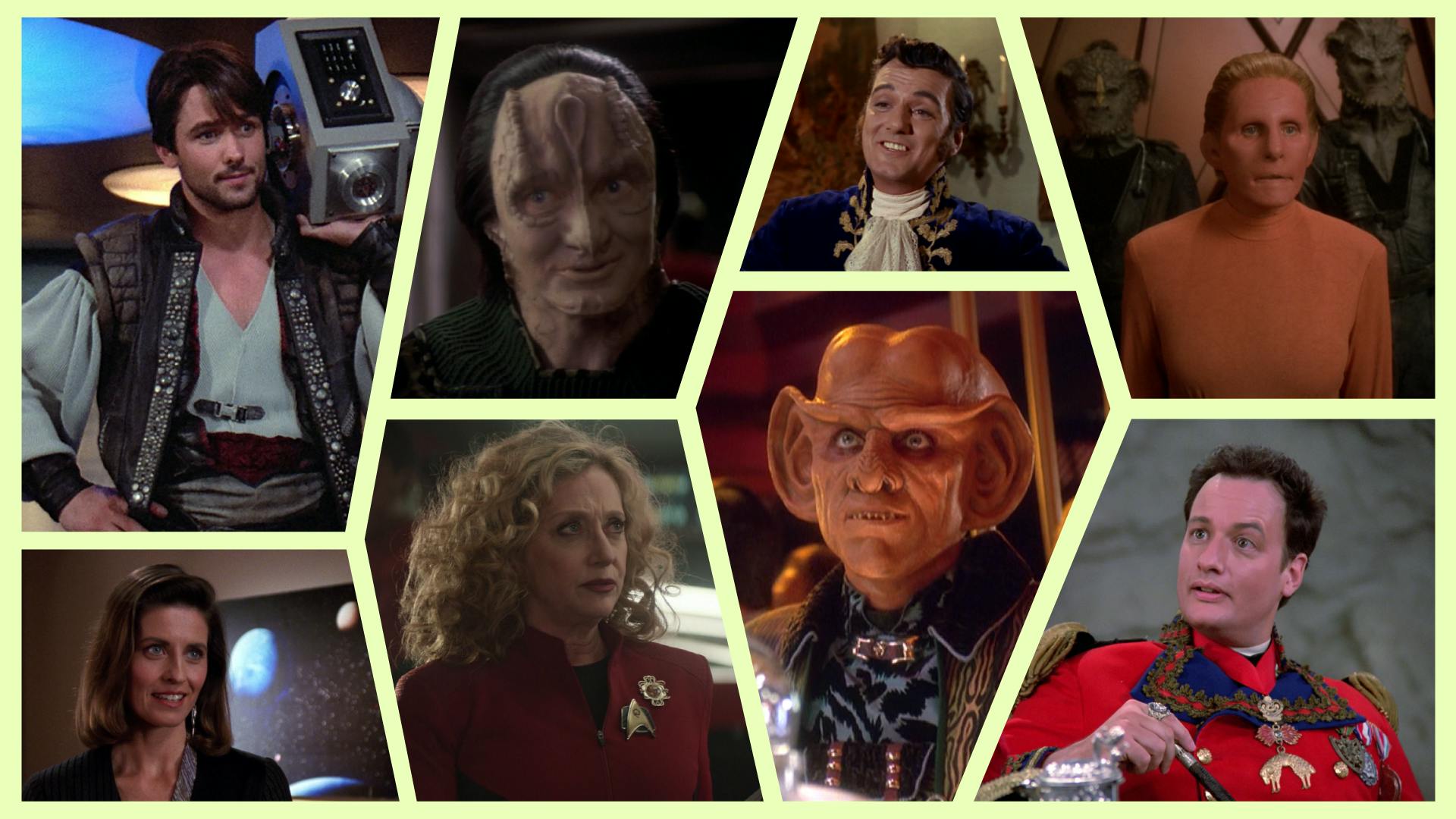Published Apr 27, 2023
Why Jazz is the Perfect Sound for Star Trek: Deep Space Nine
For International Jazz Day, we take a look at how music helps enhance the story.
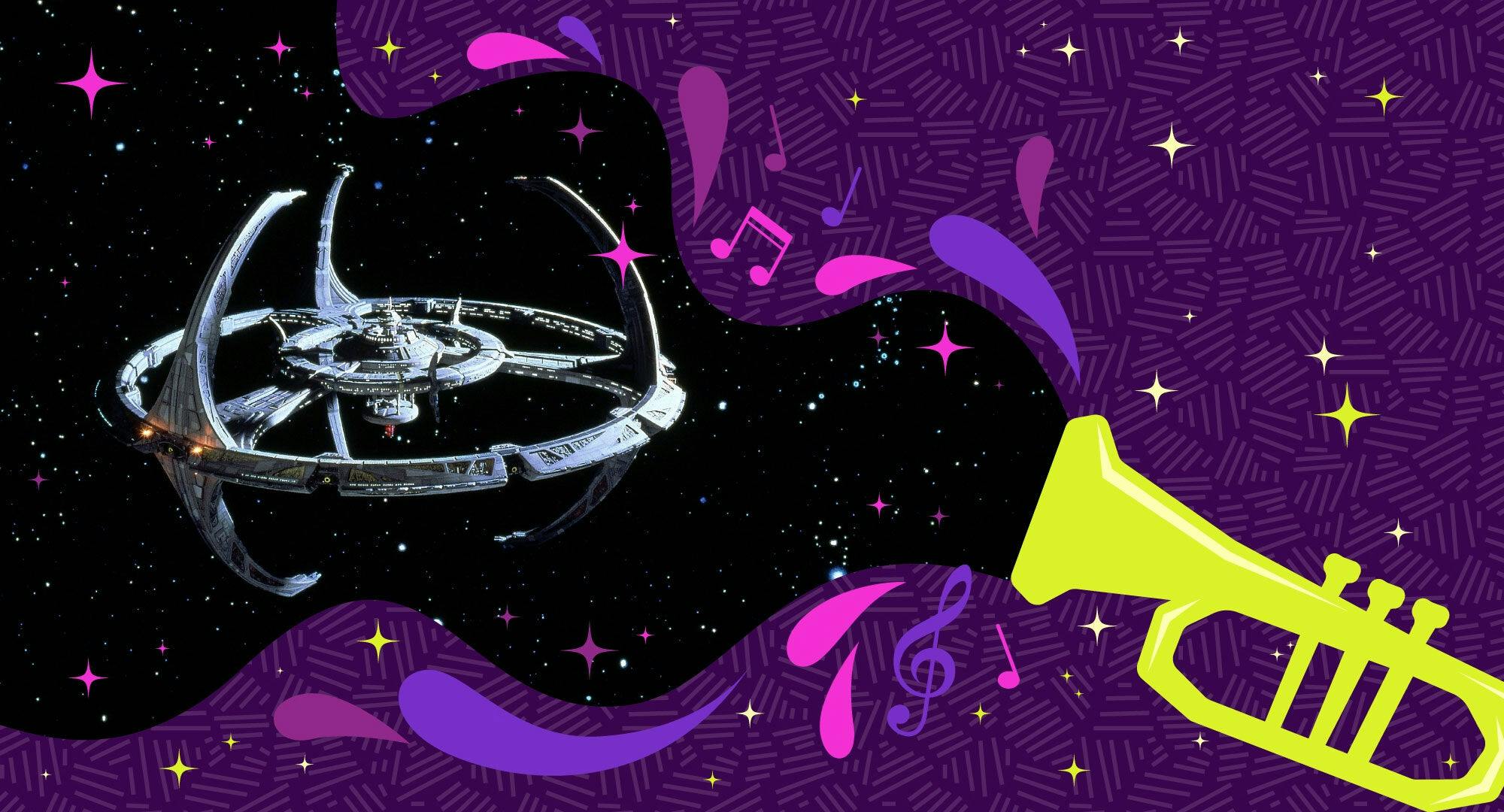
StarTrek.com / Rob DeHart
“I don’t care if a dude is purple with green breath as long as he can swing.”
That’s what legendary trumpeter Miles Davis said about jazz in his autobiography. It’s a statement that could also easily apply to Star Trek, specifically to .
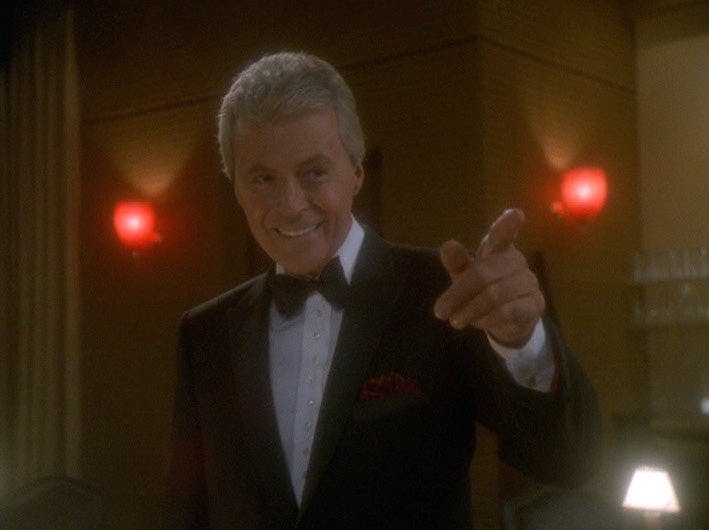
"It's Only A Paper Moon"
StarTrek.com
When James Darren joined as crooner Vic Fontaine late in the sixth season, he injected a sound that unexpectedly turned a spotlight on the heart of the series. Commonly thought of as “that show about the war,” Deep Space Nine is really about what the characters are going through on a personal level.
The story is not that of the Dominion War, but the struggles of the people living through it. The conflict is merely a backdrop, and that’s why jazz works so well. Organic, personal, and at times unpredictable, jazz is everything Deep Space Nine is.
Vic Fontaine - Star Trek: Deep Space Nine's Most Famous Hologram
Your Way
Pianist and composer Thelonius Monk once explained how jazz — like Deep Space Nine — comes from the heart and may take time for others to understand, “I say, play your own way. Don’t play what the public wants. You play what you want and let the public pick up on what you’re doing, even if it does take them 15, 20 years.”
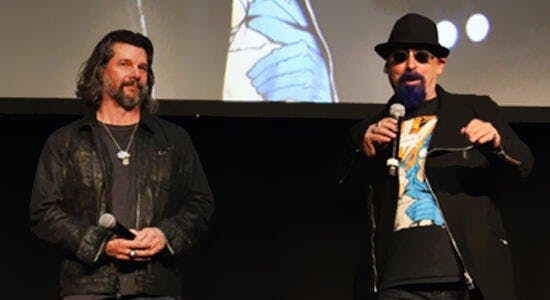
Ronald D. Moore and Ira Steven Behr on stage at Destination Star Trek Germany, 2014
StarTrek.com
In many ways, this is what Ira Steven Behr, Ronald D. Moore, and the writing team did for seven seasons. They brought together a group of diverse characters, dropped them off in the wilderness, and let them figure things out as they went along.
Instead of the refined and rigid structure of classical music favored by , this crew worked within the modal framework of jazz and improvised their way to saving the Alpha Quadrant.
From the Heart
The brilliance of the series' writing often went unappreciated at the time, but has come to be considered Star Trek’s best by many. Why has it stood the test of time? Like the stories told in jazz standards, those told on Deep Space Nine are timeless.
In “,” which ends with Sisko departing for Tyree to search for the Orb of the Emissary, we hear Frank Sinatra’s “All the Way,” the bridge of which goes:
🎵 Who knows where the road will lead us
Only a fool would say
But if you’ll let me love you
It’s for sure I’m gonna love you
All the way 🎵
Only a fool would say
But if you’ll let me love you
It’s for sure I’m gonna love you
All the way 🎵
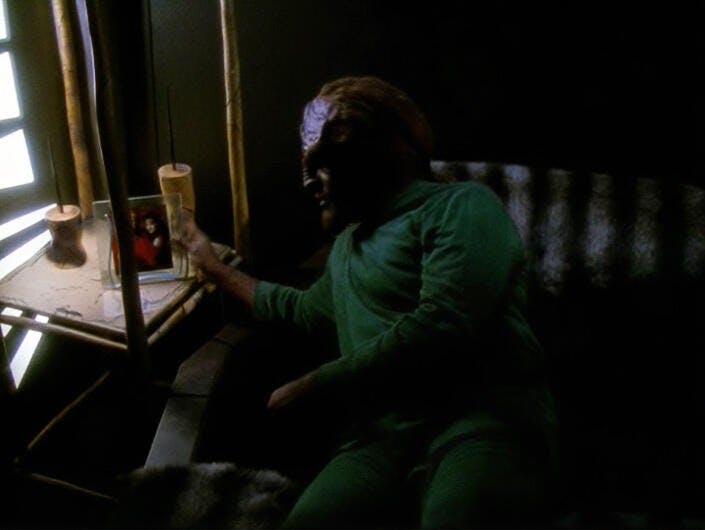
"Image in the Sand"
StarTrek.com
Here, the lyric is literally about Worf’s sadness over the loss of Jadzia — a timeless, very-human emotion grafted onto the relationship between two differing species — but it also applies to Sisko’s search for identity and what the entire crew faces through the remainder of the series.
Another example comes from “.” The traditional Star Trek formula would set the firefight to dramatic orchestral music; doing so puts the focus on the action. Instead, this battle unfolds to “I’ll Be Seeing You,” a 1938 classic by Sammy Fain and Irving Kahal, that became a favorite during World War II among those in the United States and the United Kingdom whose loved ones were serving overseas.
Apart from the link to a past war, the jarring visual and auditory disconnect of that battle shifts the focus from the action to the mental state of the Starfleet officers. It also brings greater impact to Nog’s injury.
Diversity and Cooperation
Wynton Marsalis is one of the best-known jazz musicians of the past 40 years. In October 2004, he performed with the Lincoln Center Jazz Orchestra at an event titled Let Freedom Swing: A Celebration of Human Rights & Social Justice.
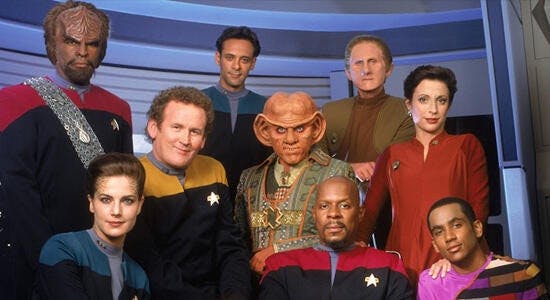
StarTrek.com
What Marsalis wrote in the event program highlights why jazz is such a good fit for Deep Space Nine —
“Jazz means working things out musically with other people. You have to listen to other musicians and play with them even if you don’t agree with what they’re playing. It teaches you the very opposite of racism and anti-Semitism. It teaches you that the world is big enough to accommodate us all.
“[It’s a performance by] a group of diverse musicians negotiating in time to create a collective expression that reflects the unique personalities and values of each individual for the good of everyone. The traditions of experimentation and improvisation in jazz resemble the innovative approach of America’s democracy in placing so much faith in its people and in striving to invent something new, different and, perhaps, even better.”
Diversity is a cornerstone of Gene Roddenberry’s vision, and cooperation is a must when serving on a crew made up of various species. This is even more true of life and service on Deep Space 9, a station that is home to many non-Federation races. What more appropriate genre than jazz could there be to capture the spirit of this series?
Sentimental You
All Star Trek endures in the hearts of fans, but the nature of that connection differs from series to series. A quarter century on, Deep Space Nine continues to form emotional ties on a level that is more often personal compared with the franchise’s other chapters, and it does it in part thanks to music that has endured far longer.
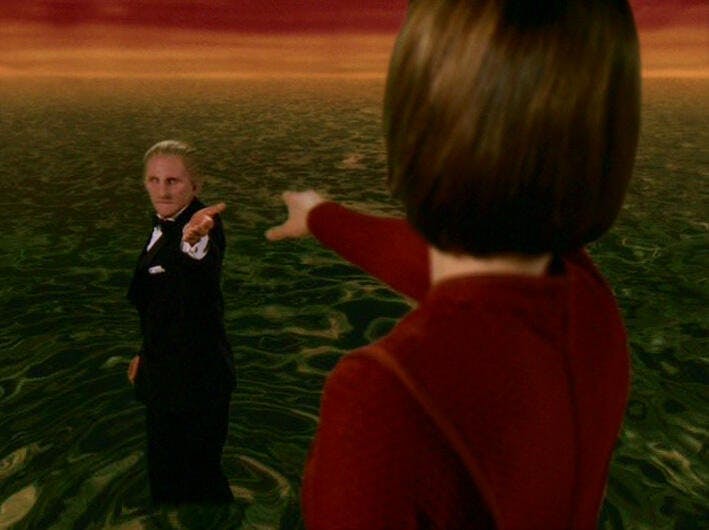
"What You Leave Behind"
StarTrek.com
Perhaps it’s best summed up by a lyric from "The Way You Look Tonight," heard in the series finale, “.” For many Niners, this line — first sung in 1936 — sums up how they feel about the show itself —
🎵 Someday, when I’m awfully low
When the world is cold
I will feel a glow just thinking of you
And the way you look tonight. 🎵
If jazz tells us anything, it’s that — a hundred years from now — we’ll look back at Deep Space Nine with the same sentimentality as that story first shared by Fred Astaire.
